Environment
-
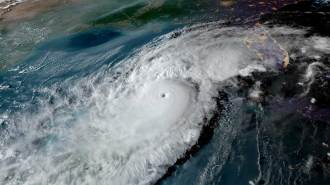 Climate
ClimateClimate change has amped up hurricane wind speeds by 29 kph on average
Every single Atlantic hurricane in 2024 had wind speeds supercharged by warming seas. One even jumped two categories of intensity.
By Nikk Ogasa -
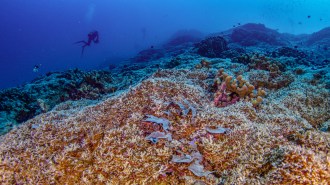 Oceans
OceansThe world’s largest coral was discovered in the South Pacific
The behemoth coral, discovered in October in the Solomon Islands, is longer than a blue whale and older than the United States.
By Nikk Ogasa -
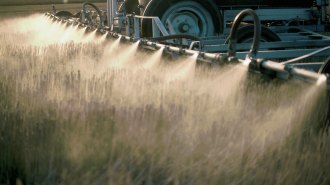 Health & Medicine
Health & Medicine22 pesticides show links to prostate cancer
The new finding comes from an analysis of pesticide use and prostate cancer incidence in over 3,100 U.S. counties.
-
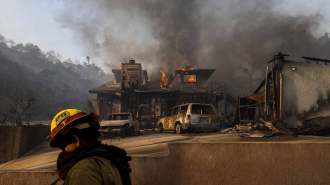 Environment
EnvironmentFire-prone neighborhoods on the fringes of nature are rapidly expanding
The transition zone where unoccupied wildlands meet developed areas increased globally by about 35 percent from 2000 to 2020.
By Nikk Ogasa -
 Animals
AnimalsThis marine biologist discovered a unique blue whale population in Sri Lanka
In addition to studying the world’s only nonmigratory blue whales, marine biologist Asha de Vos seeks to change her compatriots’ attitudes toward the ocean.
By Sandy Ong -
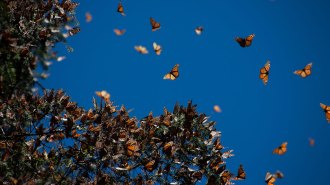 Environment
EnvironmentAn idea to save Mexico’s oyamel forests could help monarch butterflies too
Climate change is putting monarch butterflies’ overwintering forests in Mexico at risk. Could planting new forests solve that problem?
-
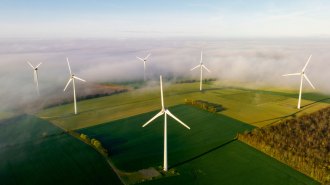 Science & Society
Science & SocietyThere’s a new term for attempting to own the wind: ventography
Nations established territorial claims underground to access oil and gas. Now they are expanding those claims upward to snag the wind.
By Sujata Gupta -
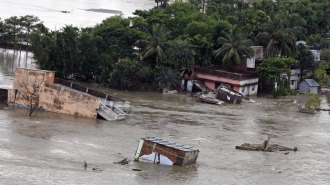 Earth
EarthWhat leads rivers to suddenly change course?
An analysis of satellite data could help predict where rivers will change their course and where their rerouted flows will go.
By Nikk Ogasa -
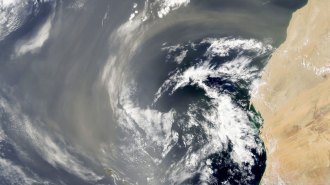 Oceans
OceansA transatlantic flight may turn Saharan dust into a key ocean nutrient
Over time, atmospheric chemical reactions can make iron in dust from the Sahara easier for organisms to take in, helping to create biodiversity hot spots.
By Douglas Fox -
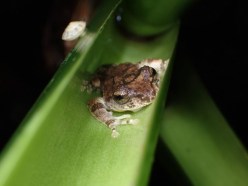 Animals
AnimalsSome tadpoles don’t poop for weeks. That keeps their pools clean
Eiffinger’s tree frog babies store their solid waste in an intestinal pouch, releasing less ammonia into their watery cribs than other frog species.
-
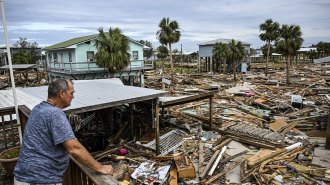 Health & Medicine
Health & MedicineA hurricane’s aftermath may spur up to 11,000 deaths
Hurricanes like Helene may indirectly cause deaths for years. Stress, pollution and a loss of infrastructure could all contribute to tropical cyclone fatalities.
By Meghan Rosen -
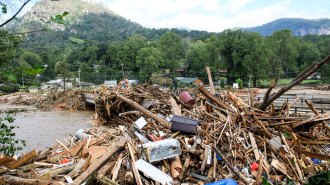 Climate
ClimateWhy Hurricane Helene was so devastating
The tempest caused record-breaking storm surge on the coast and widespread and deadly flooding and debris flows in the Appalachian Mountains.
By Nikk Ogasa